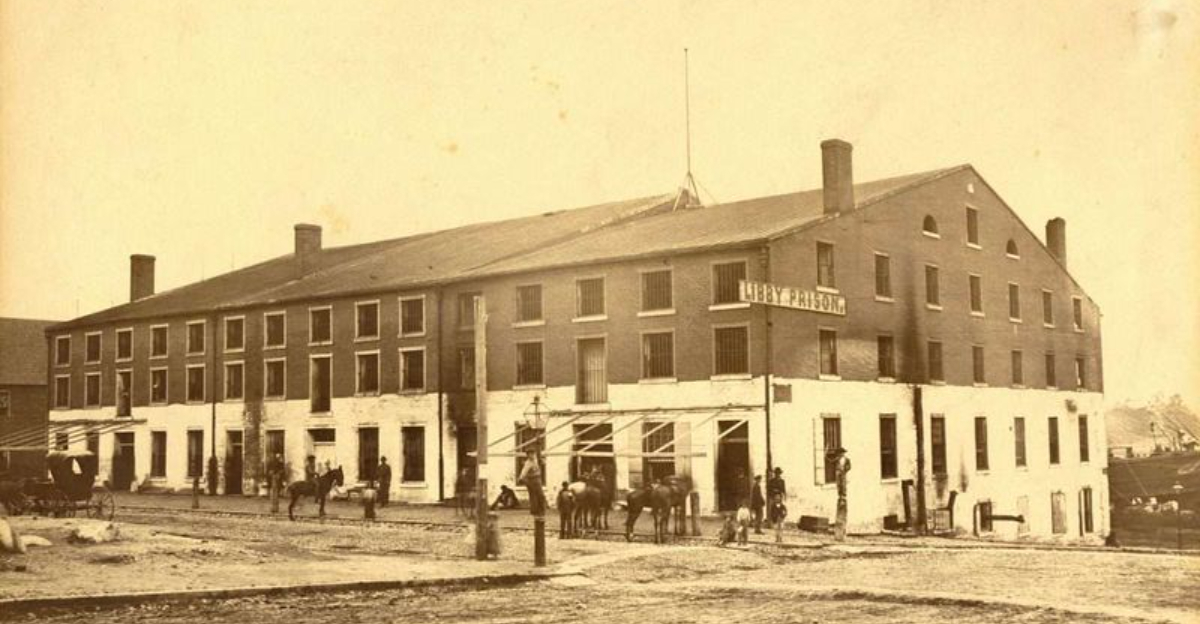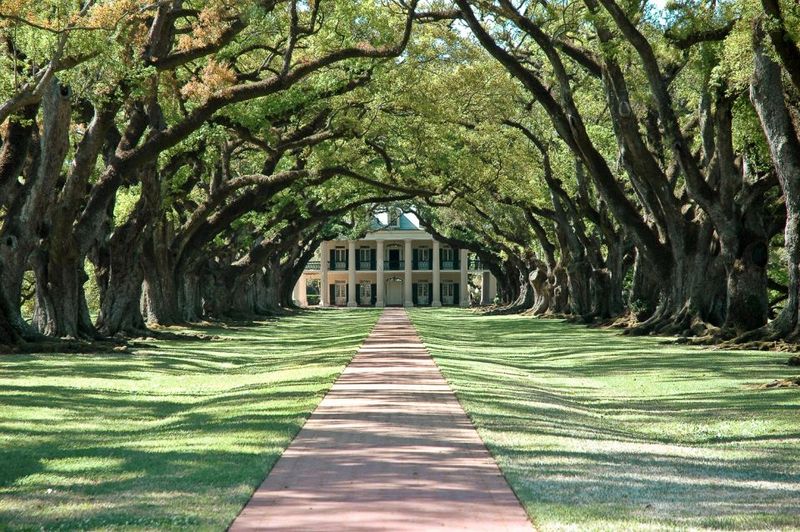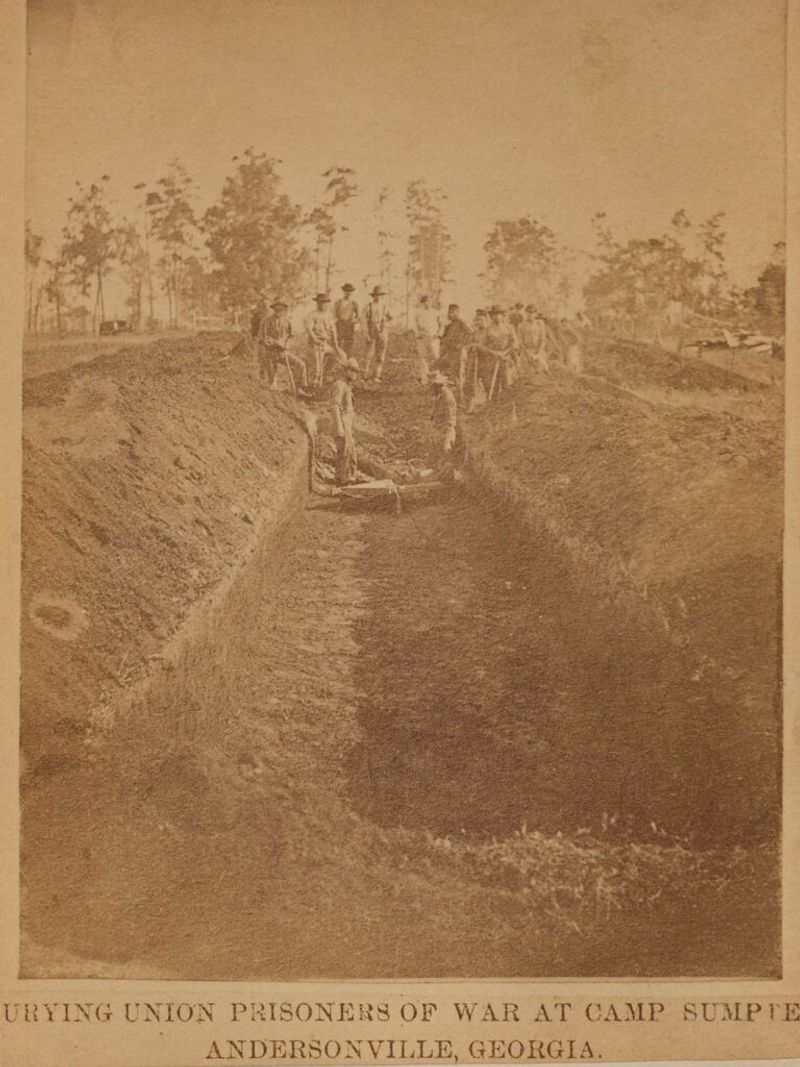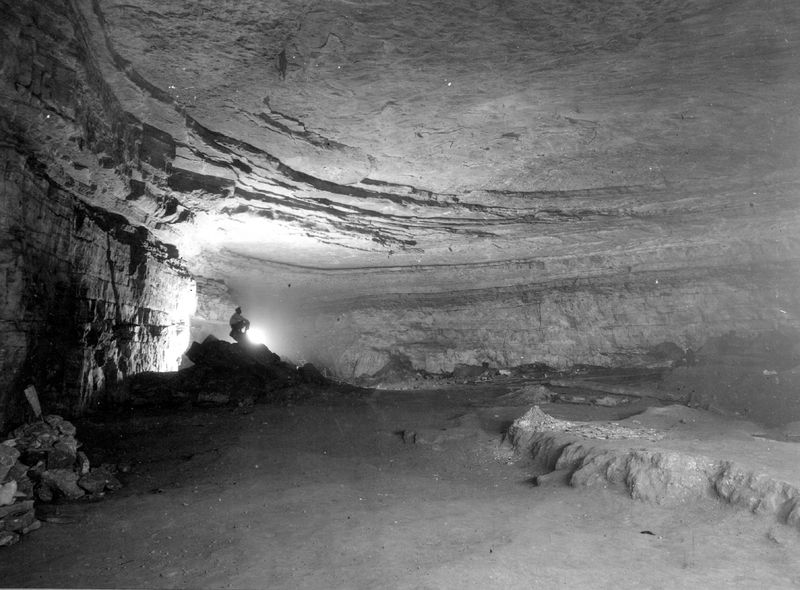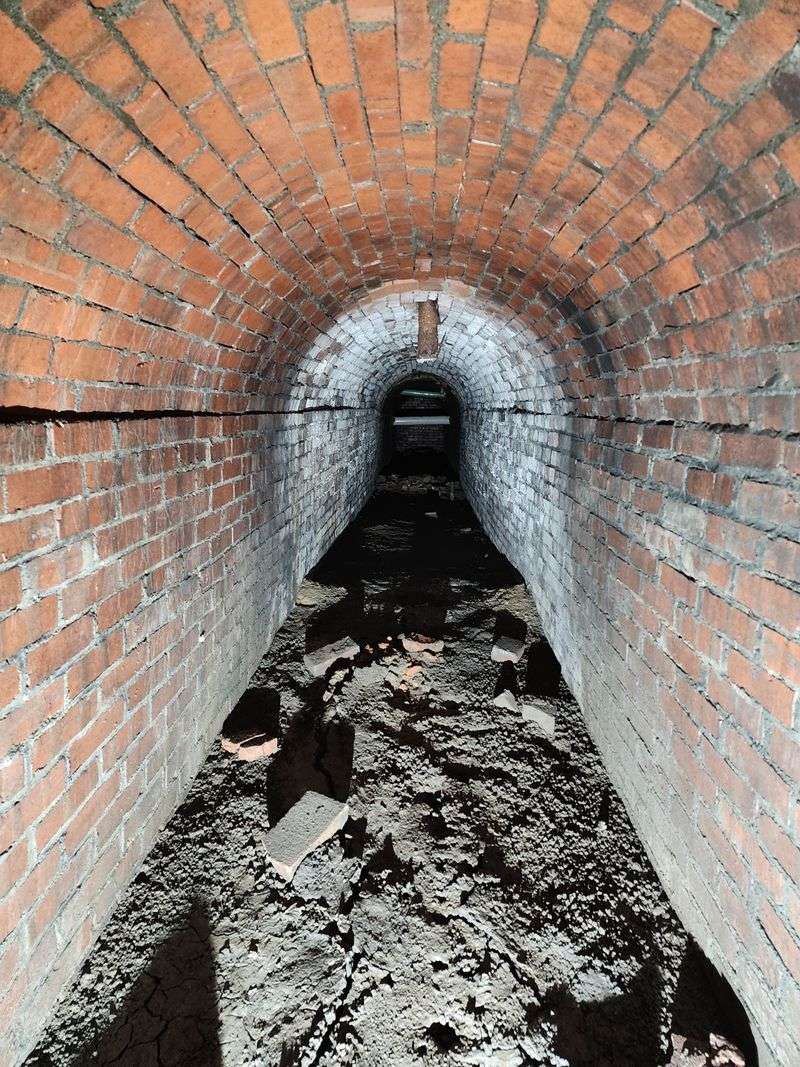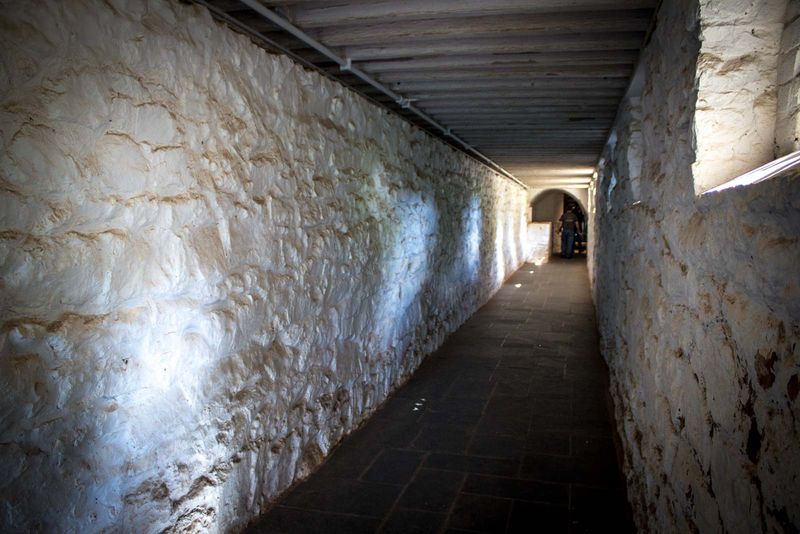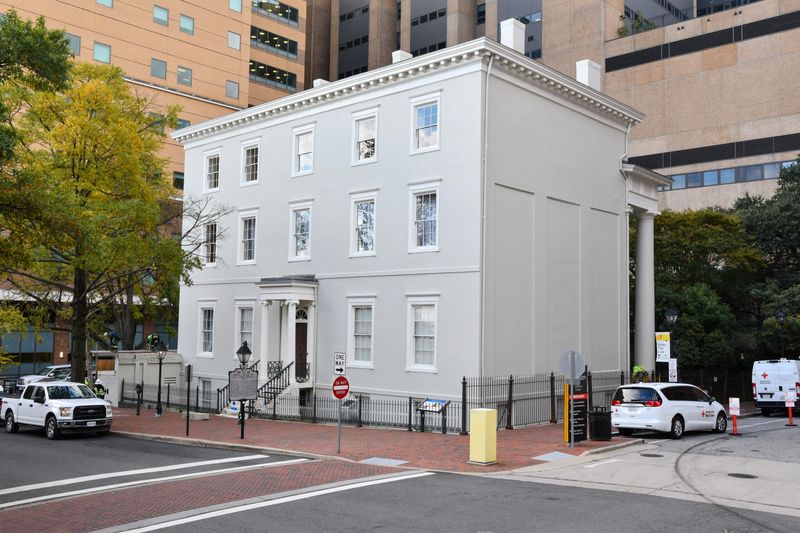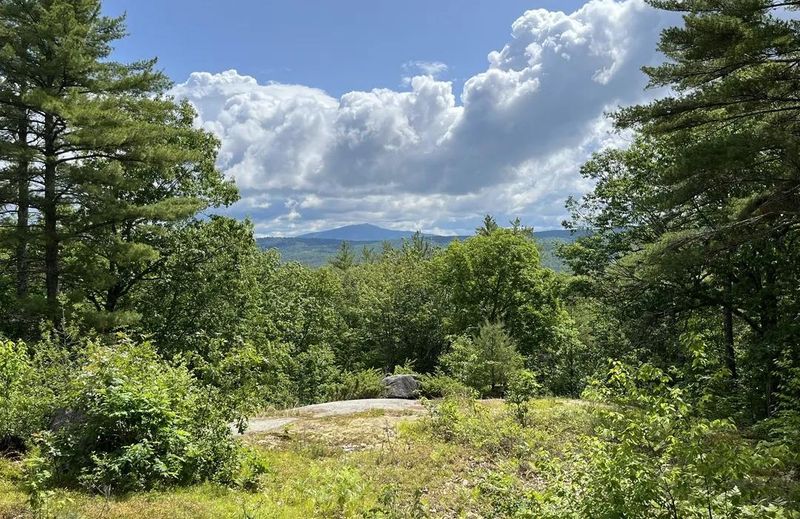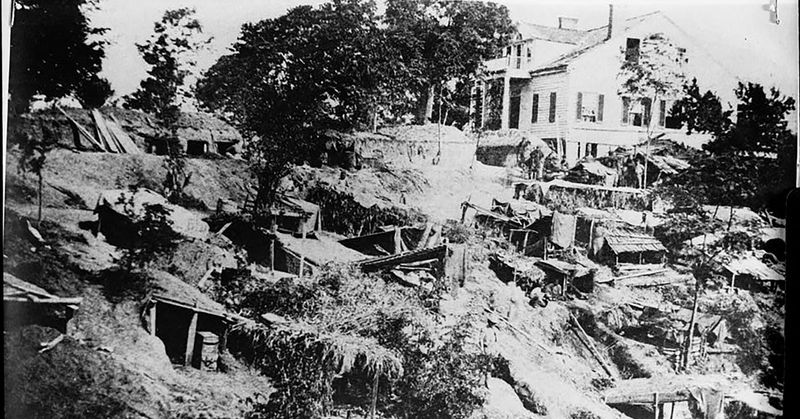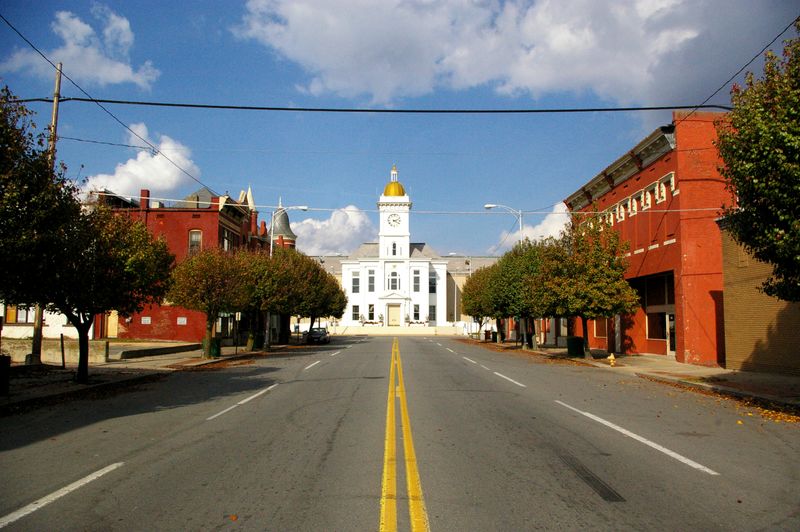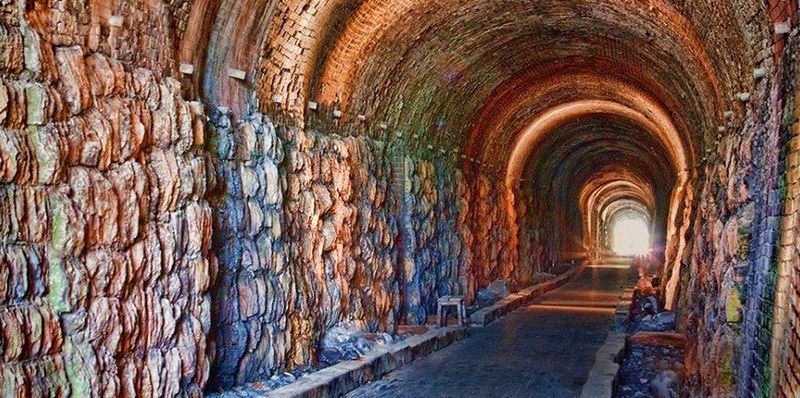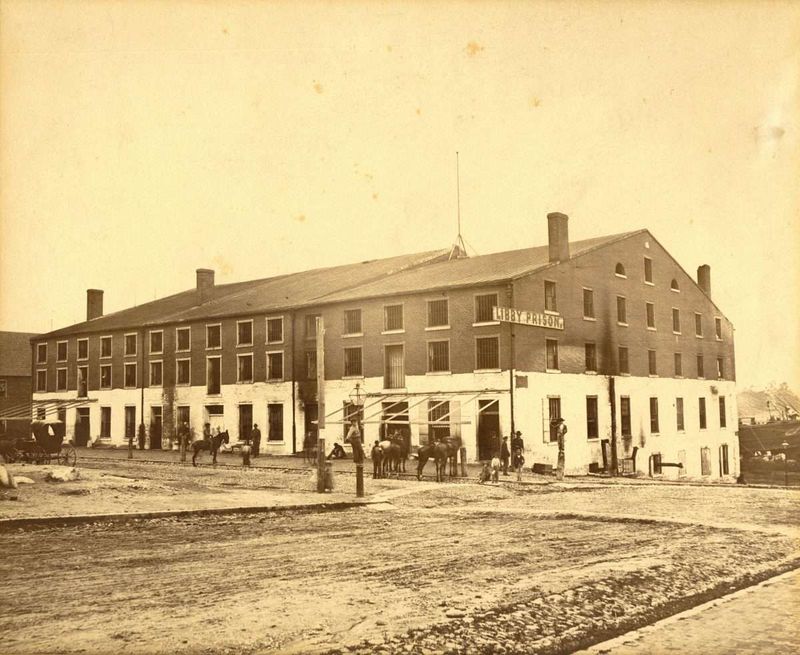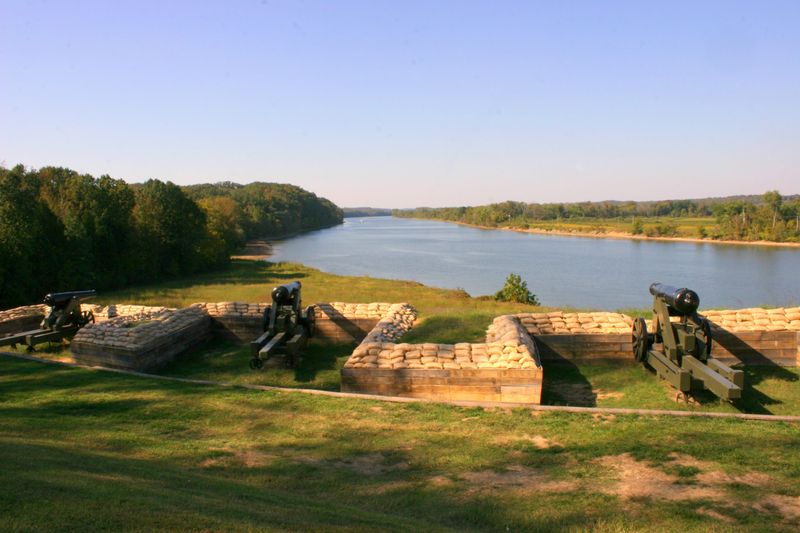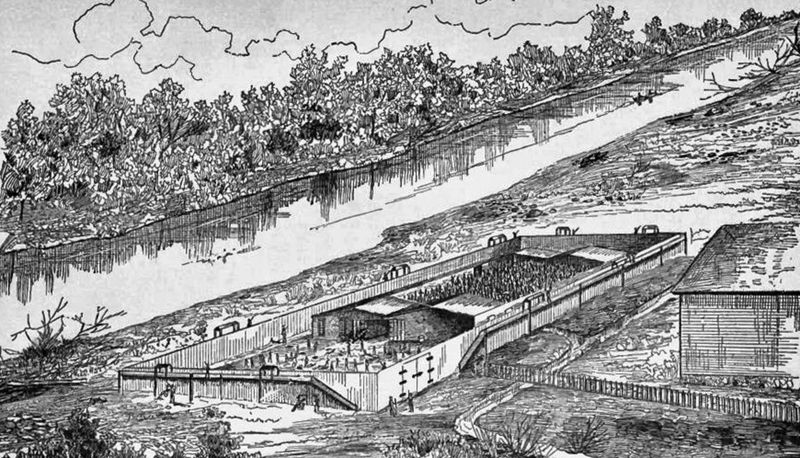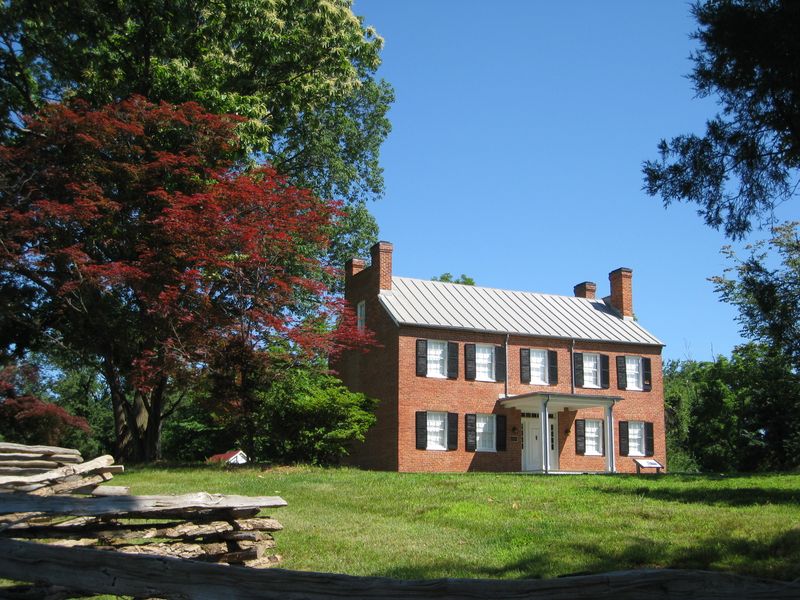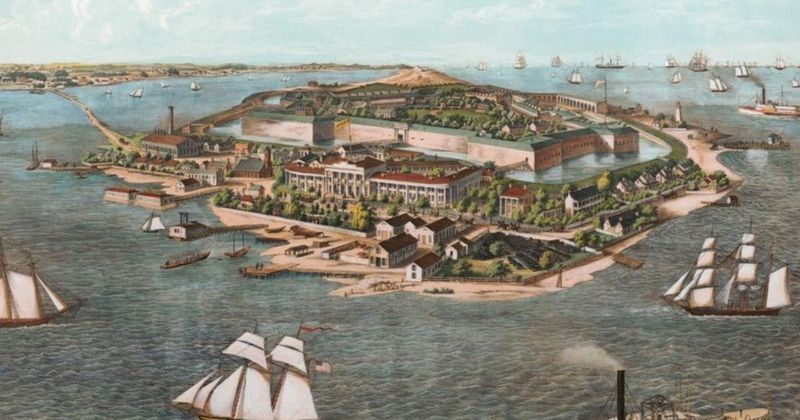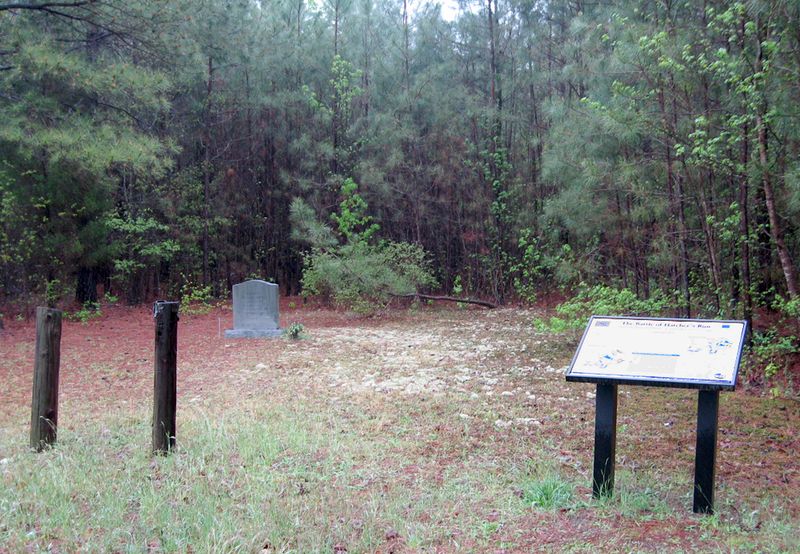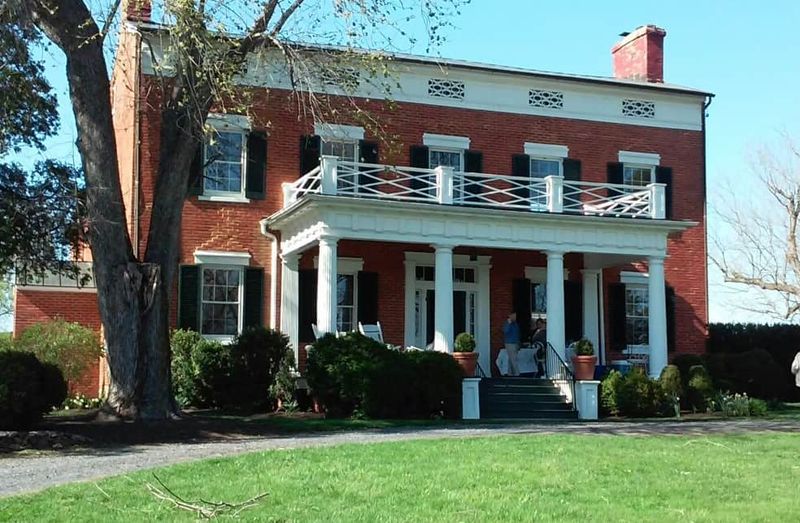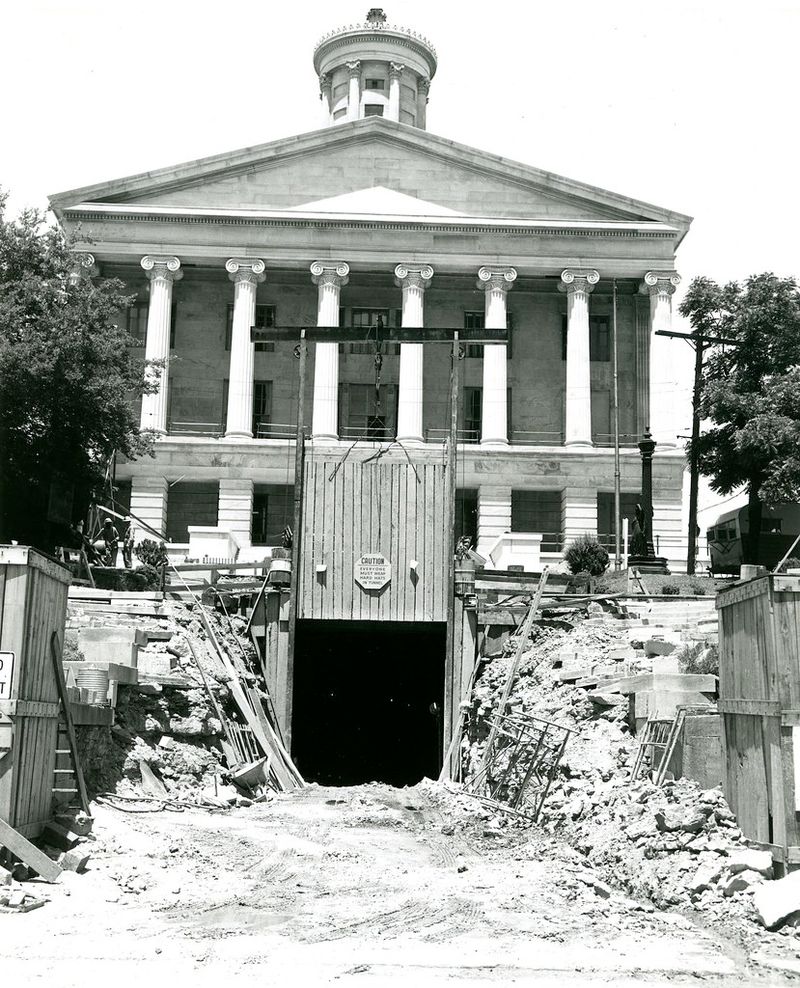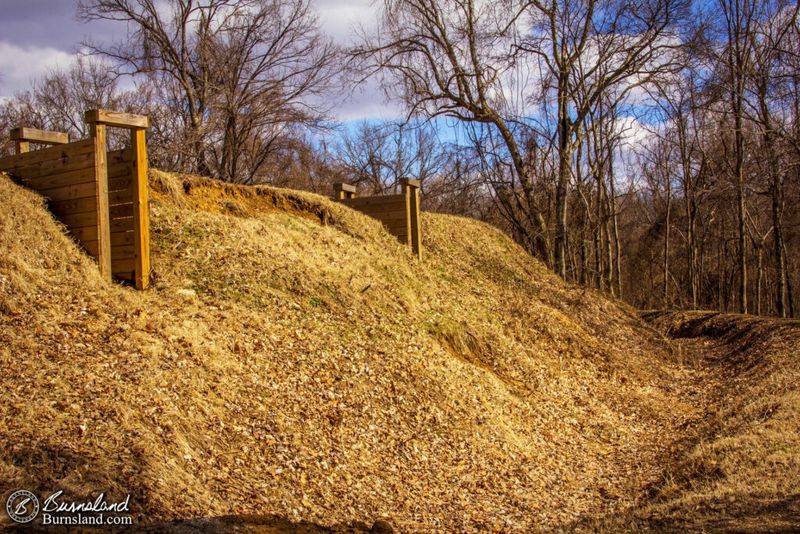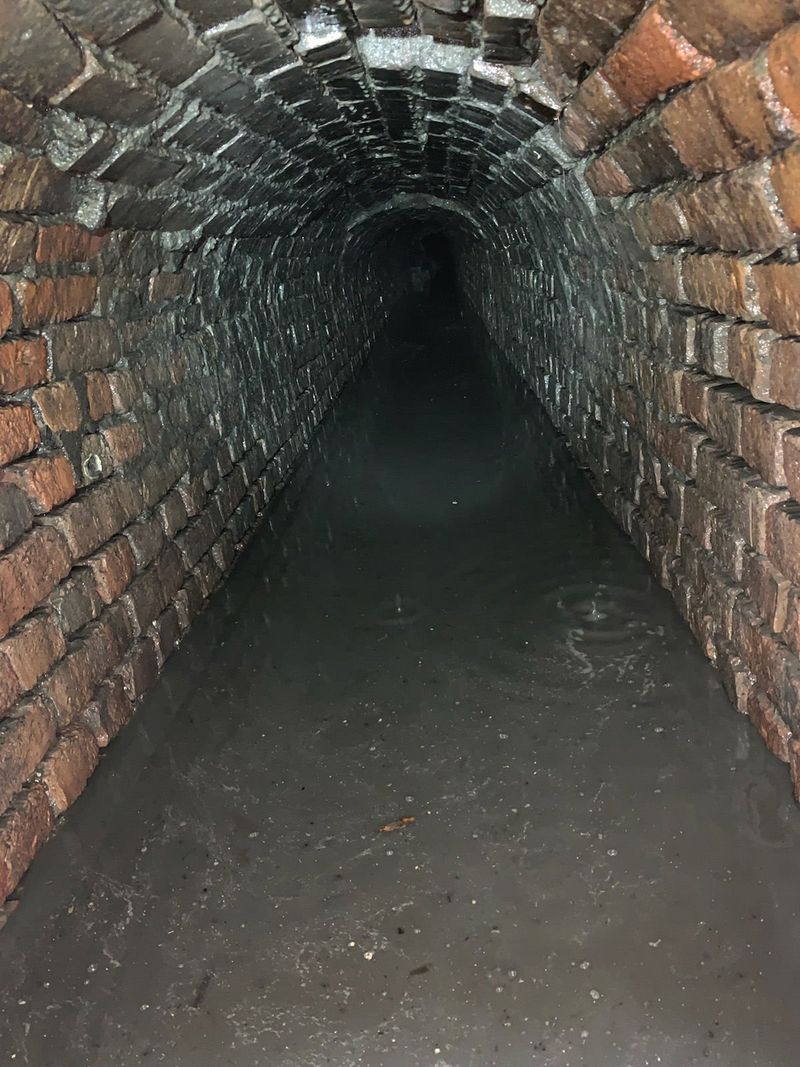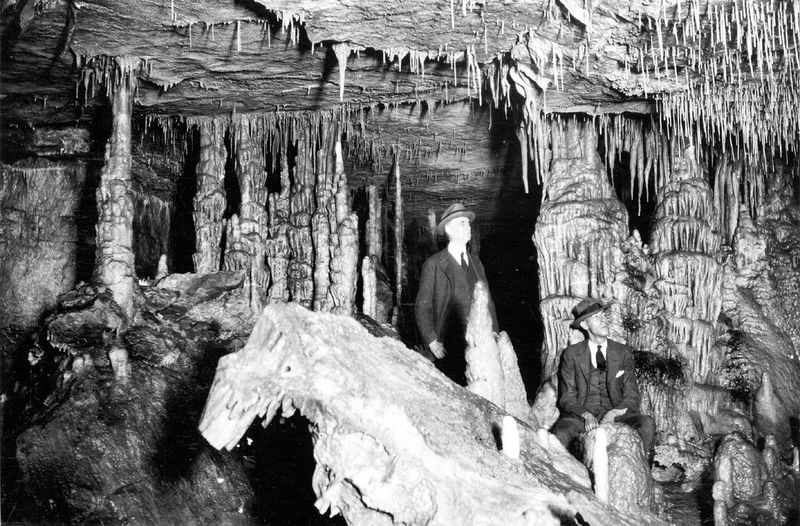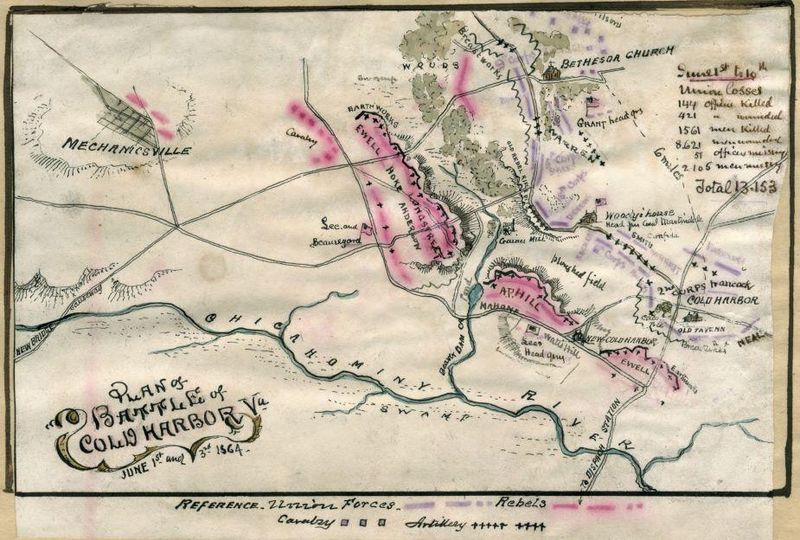The Civil War wasn’t just fought on battlefields—it was waged underground, behind walls, and in the shadows. From smuggler tunnels beneath Southern mansions to Union hideaways carved into rock, these secret locations played a pivotal role in espionage, escape, and survival. Here are 26 of the most fascinating hidden tunnels and covert hideouts used during America’s bloodiest conflict.
1. The Burnside Tunnel
This clandestine tunnel helped General Ambrose Burnside hold Knoxville by enabling discreet movement of troops beneath enemy lines.
2. Oak Alley Plantation
Rumored to contain a network of tunnels beneath its stately grounds, Oak Alley was allegedly used to shelter wounded soldiers and escaped prisoners.
3. Fort Morgan Escape Tunnel
This coastal fort concealed a tunnel used by Confederate soldiers to evade Union capture during the siege of Mobile Bay.
4. Andersonville Escape Tunnel
Prisoners at this infamous Confederate POW camp dug numerous escape tunnels, though few led to successful freedom.
5. Mammoth Cave Hideout
The vast cave system was used to store munitions—and possibly as a rendezvous point for Confederate scouts.
6. The Underground Railroad Routes
Though predating the war, many of these tunnels were reactivated to assist runaway slaves and Union scouts in enemy territory.
7. Monticello Slave Tunnels
Thomas Jefferson’s estate included hidden corridors used in the antebellum period, which were allegedly repurposed during the war.
8. White House of the Confederacy
Rumored to have secret passageways beneath it for Davis’s quick escape, though these have never been conclusively proven.
9. Honey Hill Fortifications
Underground bunkers and trenches formed a hidden network that allowed for stealth troop movement during the 1864 battle.
10. Rose O’Neal Greenhow’s Washington Safe House
This Confederate spy operated from a townhouse with hidden rooms and trapdoors, storing documents and hosting covert meetings.
11. Vicksburg Siege Tunnels
Civilians and soldiers alike carved out “bombproofs” and escape routes during the Union siege that lasted over 40 days.
12. Pine Bluff Hideouts
Union soldiers and loyalists reportedly used secret forest shelters to evade Confederate patrols in this contested town.
13. Tunnel Hill
Part of the Western & Atlantic Railroad, this tunnel was crucial for transporting Confederate troops and was a target for Union raids.
14. Libby Prison Escape Tunnel
Union officers famously tunneled out of this Confederate prison in 1864. Over 100 men escaped through the underground route—making it one of the most daring escapes of the war.
15. Fort Donelson Earthworks
Earthen forts here included hidden passageways and tunnels to move supplies and reinforcements unseen by Union artillery.
16. Cahaba Prison Drain Tunnel
Prisoners used this small drain tunnel in a daring escape attempt, though most were quickly recaptured.
17. Blenheim House Cellar
This Union-occupied farmhouse featured graffiti-covered walls and secret compartments in the cellar for stashing documents and weapons.
18. Sabine Pass Entrenchments
Engineered with hidden firing positions and crawlspaces, the fort’s defenders used them to repel Union naval attacks.
19. Fortress Monroe Escape Routes
Union forces stationed at this vital coastal stronghold created tunnels to shield against Confederate bombardments.
20. Hatcher’s Run Trenches
This battle site included labyrinthine trench systems that connected to underground bunkers and command posts.
21. Mosby’s Confederacy Hideouts
Colonel John Mosby and his rangers used barns, caves, and abandoned cabins to launch lightning raids and vanish into thin air.
22. Tunnel Beneath the Tennessee State Capitol
Built pre-war, this tunnel was used to store munitions and allow safe movement when Nashville fell under Union control.
23. Fort Pillow Earthworks
Extensive trench systems with hidden magazines were built into the bluff, making them difficult to detect from the river.
24. Tunnel System Under Charleston
Used for moving arms and evacuating key figures as Union troops closed in. Some reportedly connected to harbor escape routes.
25. Kentucky’s Crystal Onyx Cave
Used as a temporary hideout for Confederate bushwhackers avoiding capture after raids on Union outposts.
26. Union Bunker at Cold Harbor
Some of the most brutal trench warfare occurred here, with reinforced tunnels protecting men from relentless shelling.
